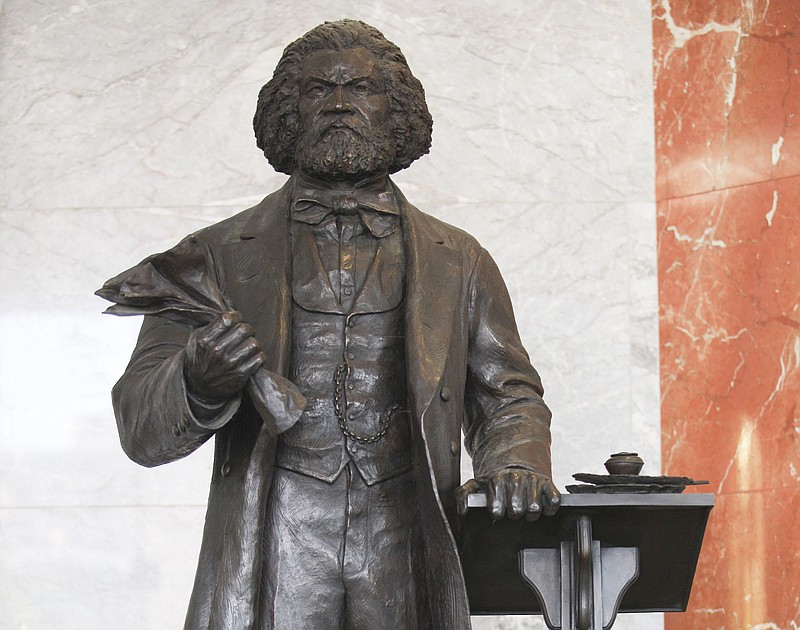Heckling mobs, determined to shout down speech they disagree with, are not unique to our time. Frederick Douglass's encounter with one in 1845 can teach us much about them.
At that time, America was polarized. Slavery was the issue, and opinions were boiling over. Douglass, the former slave turned powerful abolitionist orator, had been free for seven years. He had just published his memoir, "Narrative of the Life of Fredrick Douglass, An American Slave," and had become an international abolitionist celebrity.
In September of that year, he boarded a ship for Ireland to promote his book and to escape the risk that his former master might drag him back into the evil institution.
The ship that carried Douglass east, like the country disappearing over the horizon behind him, was consumed with the slavery debate. "From the moment we first lost sight of the American shore," Douglass wrote, "till we landed at Liverpool, our gallant steam-ship was the theatre of an almost constant discussion of the subject of slavery." It started off "cool" but grew "hotter every moment as it advanced."
The debate possessed the ship. "If suppressed in the saloon, it broke out in the steerage; and if it ceased in the steerage, it was renewed in the saloon; and if suppressed in both, it broke out with redoubled energy, high upon the saloon deck, in the open, refreshing, free ocean air."
To Douglass's great happiness, anti-slavery advocates were winning this debate: "It was a great time for anti-slavery and a hard time for slavery — the one delighting in the sunshine of free discussion, and the other horror-stricken at its God-like approach."
Defenders of slavery became enraged when they couldn't win the debate. They were "convinced that reason, morality, common honesty, humanity, and Christianity, were all against them ... ." And so, they "abandoned their post in debate, and resorted to their old and natural mode of defending their morality by brute force."
A mob formed on the deck of that little steamer, determined to prevent anyone from speaking or hearing any more anti-slavery speech.
It was, Douglass wrote, "the most daring and disgraceful, as well as wicked exhibition of depravity, I ever witnessed, North or South ... ."
What triggered these men and women to form a mob was the captain's invitation to Douglass to deliver a speech to the whole ship. Some of these "mobocrats," as Douglass called them, "swore [he] should not speak." Others made "bloody threats" against him. Others simply made so much noise that it was "impossible" for him to be heard.
For a moment, the abolitionists managed to quiet the mob by singing, allowing the captain to introduce Douglass. Douglass tried to relate the realities of slavery and explain how the slave laws of the Southern states denied slaves any rights. But he "had not uttered five words" before one member of the mob began shouting: "That's a lie!"
And when Douglass offered to prove his claim by quoting the slave laws, "[t]he slavocrats, finding they were now to be fully exposed, rushed about me, with hands clenched, and swore I should not speak."
The captain re-established order for a moment, but as soon as Douglass began to speak again, the mob interrupted him "more violently than before." They shook their fists in his face, told him what they would do to him if they could drag him back to their slave states, and threatened to throw him overboard.
Douglass never did get to speak, but he wasn't upset about that. The mob's disgraceful totalitarianism, its animal fear of opposing ideas, and its naked fragility in the face of truth did nothing but make the mob a "service to the cause against which it was directed."
"I was stopped," Douglass concluded, "but the cause went on."
GianCarlo Canaparo is a Senior Legal Fellow at the Heritage Foundation's Edwin Meese III Center for Legal and Judicial Studies.
Tribune Content Agency
